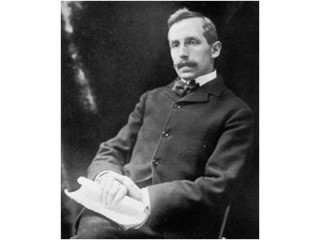
James Harvey Robinson biography
Date of birth : 1863-01-29
Date of death : 1936-02-16
Birthplace : Bloomington, Illinois, U.S.
Nationality : American
Category : Historian personalities
Last modified : 2011-07-13
Credited as : Historian, ,
James Harvey Robinson was born on June 29, 1863, in Bloomington, Ill., the son of a local banker. He received his bachelor's and master's degrees from Harvard and did his doctoral work at the University of Freiburg. There he studied under Hermann von Holst, the constitutional historian, and wrote a dissertation on the Federal principle in the American constitution.
Robinson's first teaching position was in European history at the University of Pennsylvania, where the welfare economist Simon N. Patten, who had helped him secure the job, influenced him. After a year Robinson moved to Columbia University as an associate professor of European history and became active on the curriculum subcommittee of the National Education Association for history. In 1895 he became a full professor.
At Columbia, Robinson shared progressive, reformist views with colleagues like John Dewey and continued to develop his New History idea. This historiography movement believed in history as an instrument in helping solve contemporary problems, concentrated upon the life of the common man, and cooperated with other social sciences. Robinson's concepts appeared in his course, "The Intellectual History of Western Europe," which his students called "The Downfall of Christianity."
Robinson's first textbook, An Introduction to the History of Western Europe (1902), although quite popular, was more conventional than innovative. The ideas of the New History did not appear in significant text form until The Development of Modern Europe (1907), written in collaboration with his most famous student, Charles A. Beard. A group of Robinson's essays, all but one previously published, appeared in The New History (1912). This book brought together his ideas and remains the representative work in the movement.
In 1919 Robinson resigned from Columbia to help found the New School for Social Research. There he was chairman of the executive committee and taught one course. He continued to write, producing two popular polemical books—The Mind in the Making (1921), a best seller, and The Humanizing of Knowledge (1923). These books held that a just social order could be created by applied intelligence. Robinson's ideas remained constant until his death on Feb. 16, 1936, in New York City; this is obvious in the collection of his essays edited by his student Harry Elmer Barnes and published posthumously as The Human Comedy (1937).
















